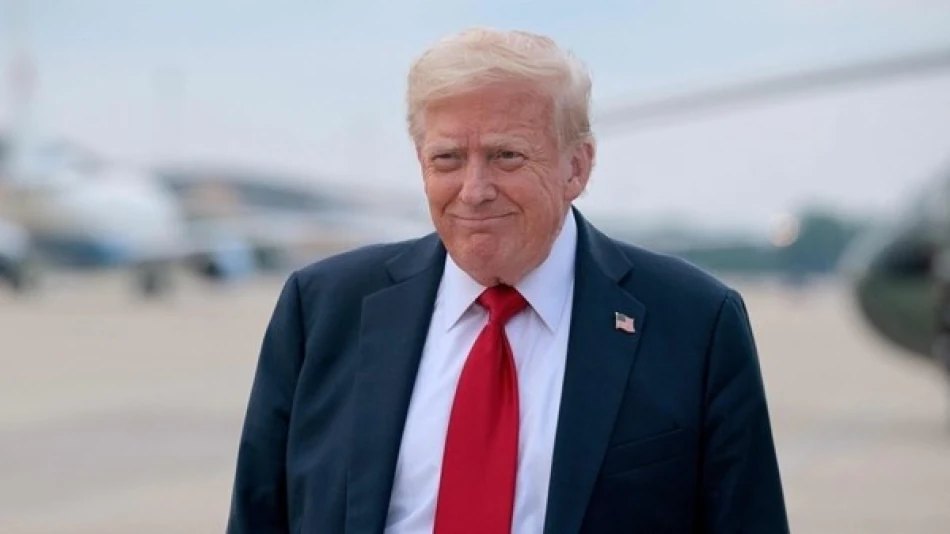
Trump Demands Concessions from EU Before Reducing Tariffs
Trump Dangles Tariff Relief as Trade Negotiations with EU Intensify
President Donald Trump has signaled willingness to reduce threatened tariffs on European goods if the European Union opens its markets wider to American companies, marking a potential breakthrough in high-stakes trade negotiations that could reshape transatlantic commerce. With a punitive 30% tariff on EU imports set to take effect August 1st, both sides appear motivated to strike a deal that could prevent a damaging trade escalation.
The Carrot-and-Stick Approach
Speaking at an artificial intelligence-focused event, Trump outlined his administration's quid pro quo strategy: "If they agree to open the Union to American companies, we will allow them to pay lower tariffs." The president emphasized that serious discussions are currently underway, suggesting momentum in negotiations that have been building for weeks.
This approach reflects Trump's characteristic transactional diplomacy, using the threat of economic pain to extract concessions while simultaneously offering relief as an incentive. The timing is particularly significant, coming just weeks before the proposed tariffs would take effect.
Market Access vs. Tariff Relief
What's at Stake for American Companies
The EU market represents a massive opportunity for U.S. businesses, with the 27-nation bloc accounting for roughly $5 trillion in combined GDP. American companies have long complained about regulatory barriers, procurement restrictions, and market access limitations that favor European competitors. Key sectors likely to benefit from increased access include technology services, financial services, and manufacturing.
European Vulnerability
The threatened 30% tariff rate would be among the highest imposed during Trump's trade offensive, potentially devastating for European exporters already grappling with economic uncertainty. Industries ranging from automotive to luxury goods could face significant market share losses in the crucial American market, creating powerful incentives for EU negotiators to find compromise.
Historical Context and Precedent
This negotiation follows a familiar pattern established during Trump's first term, when similar tariff threats against China, Mexico, and Canada ultimately led to renegotiated trade agreements. The administration's success in securing the USMCA (replacing NAFTA) and the Phase One China deal demonstrates the potential effectiveness of this high-pressure approach.
However, the EU has historically proven more resistant to American trade pressure than other partners, maintaining unity despite internal economic disparities. The bloc's response to previous U.S. tariff threats included retaliatory measures targeting politically sensitive American exports like bourbon and motorcycles.
Investor and Market Implications
Financial markets are likely watching these negotiations closely, as the outcome could significantly impact multinational corporations with substantial transatlantic exposure. European exporters face immediate downside risk if talks fail, while American companies positioned to expand in Europe could see substantial upside from improved market access.
Currency markets may also react to negotiation developments, as successful talks could strengthen the euro by removing trade uncertainty, while failure could pressure the currency amid economic disruption concerns.
The August 1st Deadline
The approaching implementation date creates genuine urgency for both sides. Unlike previous trade disputes that developed gradually, this timeline compresses negotiation dynamics and increases the likelihood of either a comprehensive deal or a significant escalation.
For Trump, delivering a trade victory with Europe would provide valuable political capital, while EU leaders face the challenge of balancing American demands against domestic political pressures to resist perceived economic coercion. The coming weeks will likely determine whether pragmatic compromise or economic nationalism ultimately prevails in this critical transatlantic relationship.
Most Viewed News

 Layla Al Mansoori
Layla Al Mansoori






